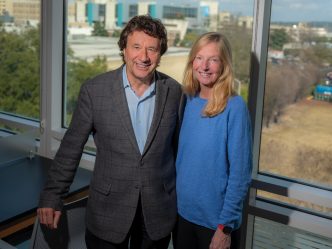In the world of mental health, diagnoses such as PTSD, schizophrenia and bipolar get a lot of mentions in the news. But the Department of Psychiatry and Health Behavior at Augusta University in partnership with the College of Allied Health Sciences is on a mission to shed light on Borderline Personality Disorder (BPD) and how the illness impacts the individual as well as their family.
The department is hosting a free Lunch and Learn at noon on May 19 in EC 1204 of the Health Sciences Building. The event features keynote speaker Dr. Shari Manning, author of Loving Someone with Borderline Personality Disorder, who offers strategies to help those with BPD and their loved ones strengthen their relationship.
“Borderline Personality Disorder is not just a diagnosis for the person living with the condition, it’s also a diagnosis their entire family needs to learn about,” said Dr. Amy House, an associate professor in the Department of Psychiatry and Health Behavior.
BPD was first described in 1938, but evidence-based treatment was not developed until the 1990s. House said between three to five percent of people in the U.S. are suffering with the disorder today. Those with the disorder display intense emotional episodes that may lead to self-harm, suicidal behaviors and substance abuse.
House has built a treatment team consisting of six clinical psychologists to treat patients with BPD. The treatment is called dialectical behavior therapy (DBT) which is used to teach people skills to handle stressful situations and their own emotions in a more adaptive way. However, House said the teaching doesn’t stop just because the patient’s appointment is over.
“You are on-call between sessions when patients need help. You are there to coach patients in using their new skills in real life,” she said.
And it’s not just the patient and psychologist involved in helping a person get control of BPD.
“If your loved one is not willing to seek professional help, then you need to seek professional help. Also, learning DBT skills will give you the power to change the environment of your home,” said Kathy Dexter, associate professor in the Physician Assistant Department at Augusta University.
Together with Gaye Vause, another woman affected by a family member with borderline personality disorder, Dexter hosts a monthly family support group at Augusta University.
To learn more about BPD, visit the Department of Psychiatry and Health Behavior’s website or call 706-721-4719.
 Augusta University
Augusta University




